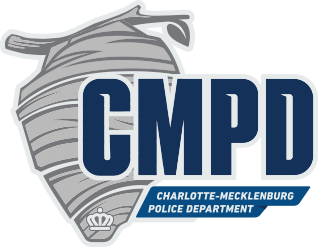Officer Michael Gainey is no stranger to the Charlotte-Mecklenburg Police Department Training Academy. He passed through its halls as a lateral recruit in 2021, and has served as an instructor for several classes of new recruits since.
This fall marks the latest achievement in Officer Gainey’s storied career as a military and law enforcement leader: He’s stepping up as lead instructor for Recruit Class 196, CMPD’s largest-ever group of trainees starting their journey to the badge.
Here are his thoughts on his new role, what recruits can expect and what advantages he believes CMPD offers lateral recruits and members of the military:
What draws you to leading and teaching?
Being a recruit trainer allows me to guide new recruits toward their goals, help them unlock their potential and achieve success.
More importantly, having the platform to inspire others, contribute positively to this agency and continuously grow personally is an honor I will never take for granted.
How is the lead instructor role different from the teaching roles you’ve held previously?
Transitioning into the role of a lead instructor brings significant changes in how I interact with recruits. It requires me to take on additional responsibilities such as overseeing the entire 25 weeks of the program, mentoring other instructors and closely monitoring recruit progress. These changes necessitate a more holistic approach toward instruction and leadership skills in order to effectively guide recruits through the Academy.
What are you most looking forward to as the lead instructor for Recruit Class 196?
Witnessing the growth and development of those under my guidance is immensely fulfilling. I have seen this process in the Army as a drill sergeant, and it is impressive to watch. So, to see it unfold in this profession will be exciting.
How do you think the recruits you’ve trained previously would describe you?
I guess that would depend on who you ask, but I feel most would talk about my compassion.
Understanding the physical and mental challenges faced by recruits during training allows me to empathize with them on a deeper level. I have always tried to create an environment where they feel comfortable expressing their concerns or seeking guidance without judgment. I foster trust and camaraderie among us, between trainer and recruit.
At the end of the day, we are on the same team, and when they graduate, maybe they are the officer coming to back me up.
What advice would you offer incoming recruits to help them hit the ground running?
First, it is crucial for the incoming recruits to come in and maintain a positive attitude. Second, effective communication skills are essential, especially in law enforcement. Last, teamwork plays a vital role in achieving success here at the Academy.
What myth or misconception about the Academy or the job do you hear most often?
One common myth is that the Academy is all about physical fitness and strength. While physical fitness is important, there are numerous other aspects that need equal attention.
The recruits need to be mentally prepared, emotionally stable and possess good communication skills.
To that point, the Academy is demanding. How important is it for recruits to make time to decompress and recharge?
It is very important for recruits to find time to decompress so they can alleviate stress and prevent burnout. Engaging in activities that make them happy and allow them to relax helps restore their energy levels and improve overall performance. It provides an opportunity for self-reflection, allowing recruits to gain perspective on their goals.
I always end the week by telling them to enjoy their time with family, friends or anything that makes them happy because they deserve it for the hard week they just put in, and the family and/or friends deserve to see them,too.
What advice can you offer recruits who have loved ones with hesitations about them becoming police officers?
I suggest they share the positive impact that police officers have on society. Discuss instances where law enforcement has made a difference in communities or helped individuals in need. Let your loved ones know that you always have a commitment to safety and ethical conduct.
You were a lateral transfer to CMPD. What do you wish you’d known then that you know now?
I wish I had known the value of patience during this transition period. Adjusting to a new work environment takes time, and it is important not to rush or become overwhelmed by trying to prove oneself too quickly. Patience allows for learning opportunities and growth within the new organization.
I recall wanting to do everything at once to prove myself, I guess. I remember volunteering for everything, and slowly burning myself out at a quick pace. I had a great supervisor that slowed me down and assisted me to the path of training here at the Academy.
What are the biggest advantages of a career in law enforcement for current and former members of the military?
The shared camaraderie between military personnel and police officers will not be found anywhere else. Both professions involve working closely with a team toward a common goal of protecting and serving the public. The brother/sisterhood fosters trust among colleagues and creates a supportive work environment.
The best part of it all is that it offers an opportunity to continue serving one’s country by protecting communities and upholding justice.
Accelerate your career here
Ready to join the men and women of CMPD? Start your new trainee, lateral entry or intermediate entry application today.
























